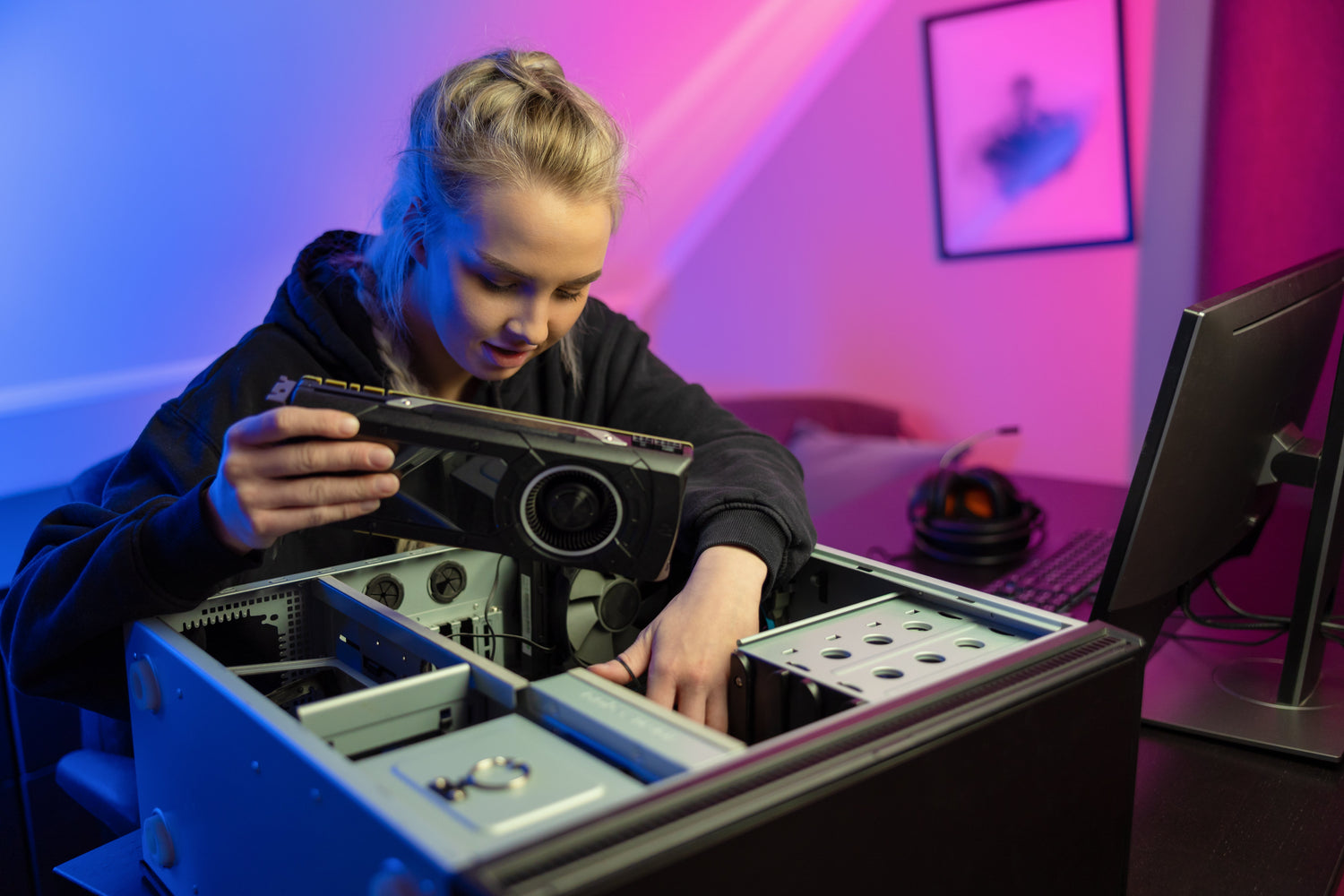
5 Signs It's Time to Upgrade Your Gaming PC
In the dynamic world of gaming, technology evolves rapidly, and what was once a top-tier gaming rig can quickly become outdated. Recognizing when it's time to upgrade your gaming PC is crucial to ensure optimal performance and an immersive gaming experience. Here are five telltale signs that indicate it's time to consider an upgrade:
1. Diminished Game Performance
One of the most apparent indicators that your gaming PC is due for an upgrade is a noticeable decline in game performance. Experiencing frequent frame rate drops, stuttering, or the need to lower graphics settings to achieve playable performance are clear signs. Modern games are increasingly demanding, and older hardware may struggle to keep up, leading to a less enjoyable gaming experience.
Assessing Frame Rates
Frame rate, measured in frames per second (FPS), is a critical metric for gaming performance. If you're consistently getting FPS below 30 in games that your system previously handled well, it's a strong indication that your hardware is lagging behind current game requirements. To learn more about FPS and how it affects gaming performance, check out this FPS guide by NVIDIA.
Graphics Settings Downgrade
When you find yourself reducing graphics settings from high to medium or low to maintain smooth gameplay, it's a sign that your GPU or CPU might not be keeping pace with the latest game engines and graphical demands. Additionally, if you’re noticing that even at lower settings, your games are still lagging, you may be dealing with an aging graphics card or insufficient RAM.
Slow Load Times
Aging storage solutions, such as older HDDs, can significantly impact game loading times. Upgrading to an NVMe SSD can drastically reduce waiting times and enhance your overall gaming experience. Read more about the benefits of SSDs versus HDDs on Tom’s Hardware.
2. Incompatibility with New Titles
As game developers harness the power of new technologies, older systems may face compatibility issues. If your PC doesn't meet the minimum or recommended system requirements for new game releases, or if certain games refuse to run altogether, it's a clear sign that an upgrade is necessary.
Minimum vs. Recommended Requirements
While meeting the minimum requirements allows a game to run, aiming for the recommended specifications ensures a smoother and more immersive experience. Regularly check the system requirements of upcoming games to gauge how your current setup compares. You can find system requirements for most new games on PCGameBenchmark.
Missing Out on New Features
Newer GPUs and CPUs introduce features like ray tracing, DLSS (Deep Learning Super Sampling), and better multi-threading capabilities. If your system lacks support for these advancements, you may not be experiencing games as they are meant to be played. To better understand how DLSS works, visit NVIDIA’s official guide.
3. Hardware Limitations and Bottlenecks
Over time, individual components can become bottlenecks, limiting the overall performance of your system. For instance, an older CPU might hinder the capabilities of a newer GPU, preventing you from achieving desired performance levels.
Identifying Bottlenecks
Utilize system monitoring tools to assess the performance of your CPU, GPU, and RAM during gameplay. If one component consistently operates at maximum capacity while others remain underutilized, it's indicative of a bottleneck. For example, if your GPU usage is low while your CPU is at 100%, your processor is holding back performance. Learn more about identifying and fixing bottlenecks on TechSpot.
Storage Constraints
Modern games require substantial storage space, and if you're constantly juggling installations due to limited SSD or HDD capacity, upgrading your storage can provide immediate relief and improve load times. NVMe SSDs offer significantly faster speeds than traditional SATA SSDs or HDDs. To compare storage solutions, check out Western Digital’s SSD vs. HDD guide.
4. Outdated Features and Technologies
The gaming industry continually introduces new technologies that enhance gameplay, such as ray tracing, virtual reality (VR) support, and advanced AI capabilities. If your current system lacks support for these features, you're missing out on significant aspects of modern gaming.
Ray Tracing and Graphics Enhancements
Ray tracing offers realistic lighting and reflections, significantly enhancing visual fidelity. GPUs that support ray tracing provide a more immersive experience in compatible games. If your graphics card doesn't support this feature, upgrading can drastically improve your experience in modern titles. Learn more about ray tracing from Digital Foundry.
Virtual Reality (VR) Gaming
VR gaming requires robust hardware specifications. If you're interested in exploring VR titles, ensure your system meets the necessary requirements, including a powerful GPU, sufficient RAM, and compatible ports for VR equipment.
5. Increased System Instability
Frequent system crashes, overheating, and unusual noises from your PC are signs of aging hardware. Components like fans, power supplies, and thermal paste degrade over time, leading to instability and potential hardware failure.
Overheating Issues
If your system temperatures are consistently high, it can lead to thermal throttling, where the CPU or GPU reduces performance to prevent damage. Regular maintenance, such as cleaning dust from components and ensuring proper airflow, is essential. However, if overheating persists, you may need to upgrade your cooling solution or replace aging hardware. Check out some of our custom water-cooled PCs that offer a solution to this issue.
Taking the Next Step with Flying Phoenix PCs
Recognizing the need for an upgrade is the first step toward revitalizing your gaming experience. At Flying Phoenix PCs, we offer tailored solutions to meet your specific needs.
Upgrade Program
Our Upgrade Program is designed to provide you with the latest components to enhance your system's performance. Whether it's a new GPU, additional RAM, or faster storage, we ensure compatibility and optimal performance. With our seamless process, you can easily upgrade without the hassle of researching and assembling parts on your own.
Trade-In Program
Looking to offset the cost of your new hardware? Consider our Trade-In Program, where you can exchange your old components or systems for credit towards your upgrade. It's an economical and environmentally friendly way to stay current with technology.
Conclusion
Staying attuned to the performance and capabilities of your gaming PC ensures that you continue to enjoy the latest games as they're meant to be experienced. If you've noticed any of the signs mentioned above, it might be time to consider an upgrade. Explore the options available at Flying Phoenix PCs to elevate your gaming experience to the next level.
